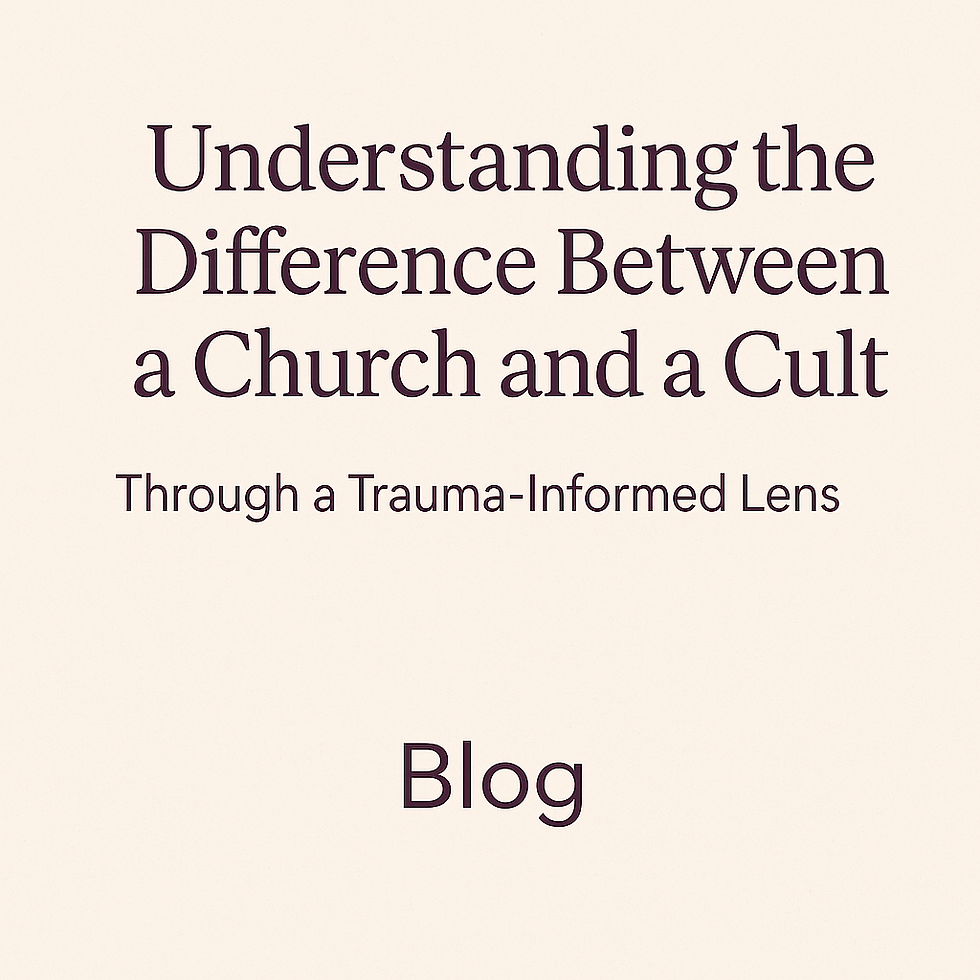How Childhood Trauma Affects Trust in Relationships (And How to Heal)
- Rachel Hansen

- Jun 24, 2025
- 4 min read

You want to trust. To feel safe with someone. To believe that love can be consistent, secure, and lasting.
But no matter how much you try, something inside holds back.
Maybe you feel like you always have to stay alert. Maybe you keep people at a distance before they have the chance to leave you. Maybe a part of you believes that trust is dangerous, because in your past, trusting meant getting hurt.
If childhood trauma has made it hard to trust in relationships, you are not alone. Trust can be rebuilt. You can learn to feel emotionally safe again.
How Childhood Trauma Creates Trust Issues
Our ability to trust does not come only from adult relationships. It begins in childhood, shaped by how safe and seen we felt with our caregivers.
If you grew up in an environment where:
Caregivers were emotionally unavailable or inconsistent
You had to earn love by being quiet, helpful, or “good”
You were neglected, betrayed, or hurt by people who were supposed to protect you
You learned that love could be taken away without warning
Then it makes sense why trusting others feels risky now.
Your nervous system learned to stay on alert. That response was a form of protection, but it may be getting in the way of the connection you want today.
Signs Childhood Trauma is Affecting Your Relationships
You fear people will eventually leave, betray, or disappoint you
You struggle to let people get close
Vulnerability feels unsafe or even dangerous
You second-guess your own instincts about who to trust
You may sabotage relationships to avoid the pain of being hurt again
These are not character flaws. They are trauma responses. Your brain and body are doing their best to protect you based on what you’ve lived through.
The good news is that these patterns can be changed. Trust can be healed.
How to Heal Trust Issues After Childhood Trauma
1. Understand That Distrust Is a Survival Response
If trust feels difficult, it is not because something is wrong with you. It is because your nervous system learned that trust equals danger.
You are not choosing to push people away. Your mind and body are reacting to old pain.
Start by reminding yourself:
I am not a child anymore. I have more safety and power now.
Not everyone will hurt me the way I was hurt before.
I can take my time learning to trust again, step by step.
This is the foundation of healing.
2. Rebuild Trust in Yourself First
One of the deepest impacts of childhood trauma is losing trust in your own instincts.
If you were gaslit, manipulated, or constantly questioned as a child, you may have learned to ignore your feelings. You may doubt your own perception of people and situations.
Healing starts by learning to listen to yourself again.
Try this:
Make small decisions and trust yourself to handle the outcome
Pay attention to your gut feelings and validate them
Remind yourself: My perspective matters. I can trust my inner voice
As self-trust grows, it becomes easier to choose who is truly safe to let in.
3. Take Small and Safe Steps in Trusting Others
Trust does not have to be all or nothing. It is something that can be built gradually.
Start with small acts of openness:
Share a little about yourself and see how the other person responds
Notice who follows through, who listens, and who respects your boundaries
Observe patterns over time instead of rushing to judgment
Trust builds through consistent, safe experiences. It is okay to move slowly.
4. Learn to Tell the Difference Between Intuition and Trauma Triggers
Sometimes mistrust is your intuition protecting you. Other times, it is trauma speaking from the past.
Learning the difference is part of the healing process.
Ask yourself:
Is this person actually showing signs of being unsafe?
Is there real evidence of harm, or am I bracing for what used to happen?
Is my body reacting with calm awareness or fear-based panic?
The more you practice this awareness, the more clearly your intuition can guide you.
5. Work with a Therapist to Heal the Root of Your Trust Issues
If you are finding it hard to shift these patterns on your own, therapy can help.
At ThriveWell Therapy, we support clients in:
Understanding how early trauma shaped their ability to trust
Rewiring the nervous system for safety and connection
Rebuilding self-trust and learning to choose safe, secure relationships
You are not too damaged. You are not too late. With the right support, healing is possible.
You Are Allowed to Feel Safe in Love
You are not broken. You are not destined to repeat the past. You are not unworthy of connection.
You can heal from trauma. You can learn to trust again. You can experience love that feels safe, steady, and real.
Therapy for Trust Issues in Las Vegas, Nevada and New Jersey
If you’re ready to begin healing trust issues rooted in childhood trauma, I'm here to help.
At ThriveWell Therapy I offer in-person therapy in Las Vegas and online therapy for trauma and attachment issues throughout Nevada and New Jersey.
Let’s work together to help you:
Reconnect with yourself
Build healthier, more secure relationships
Feel safe in love again
👉 Book a free consultation today to start your healing journey.



Comments